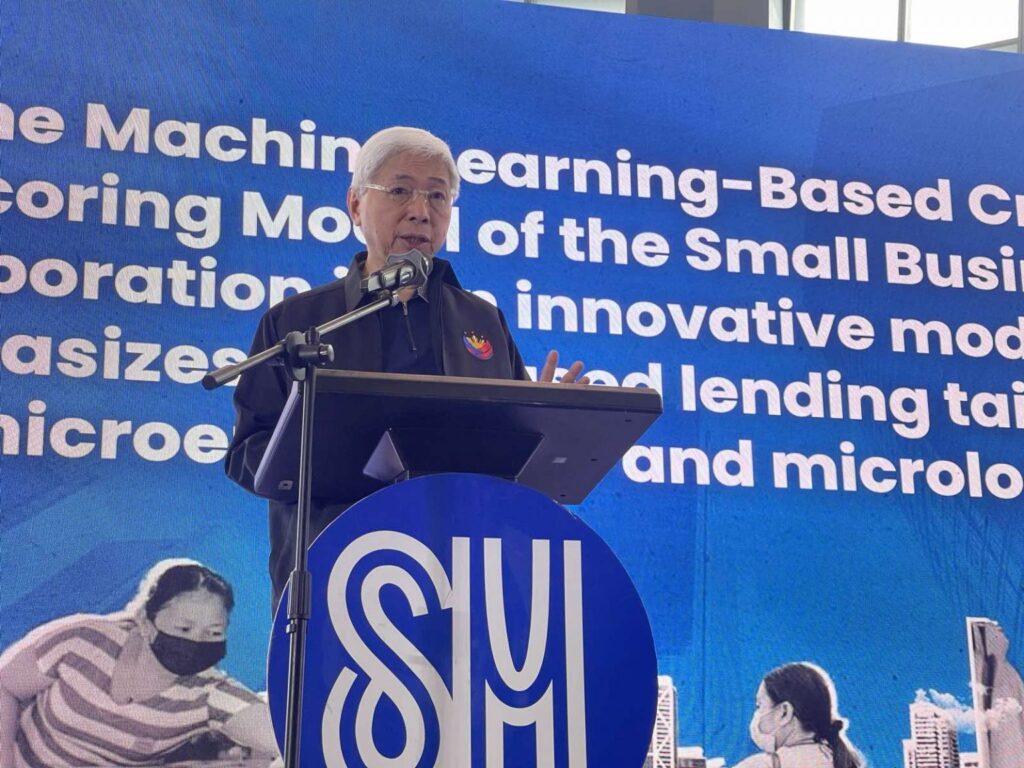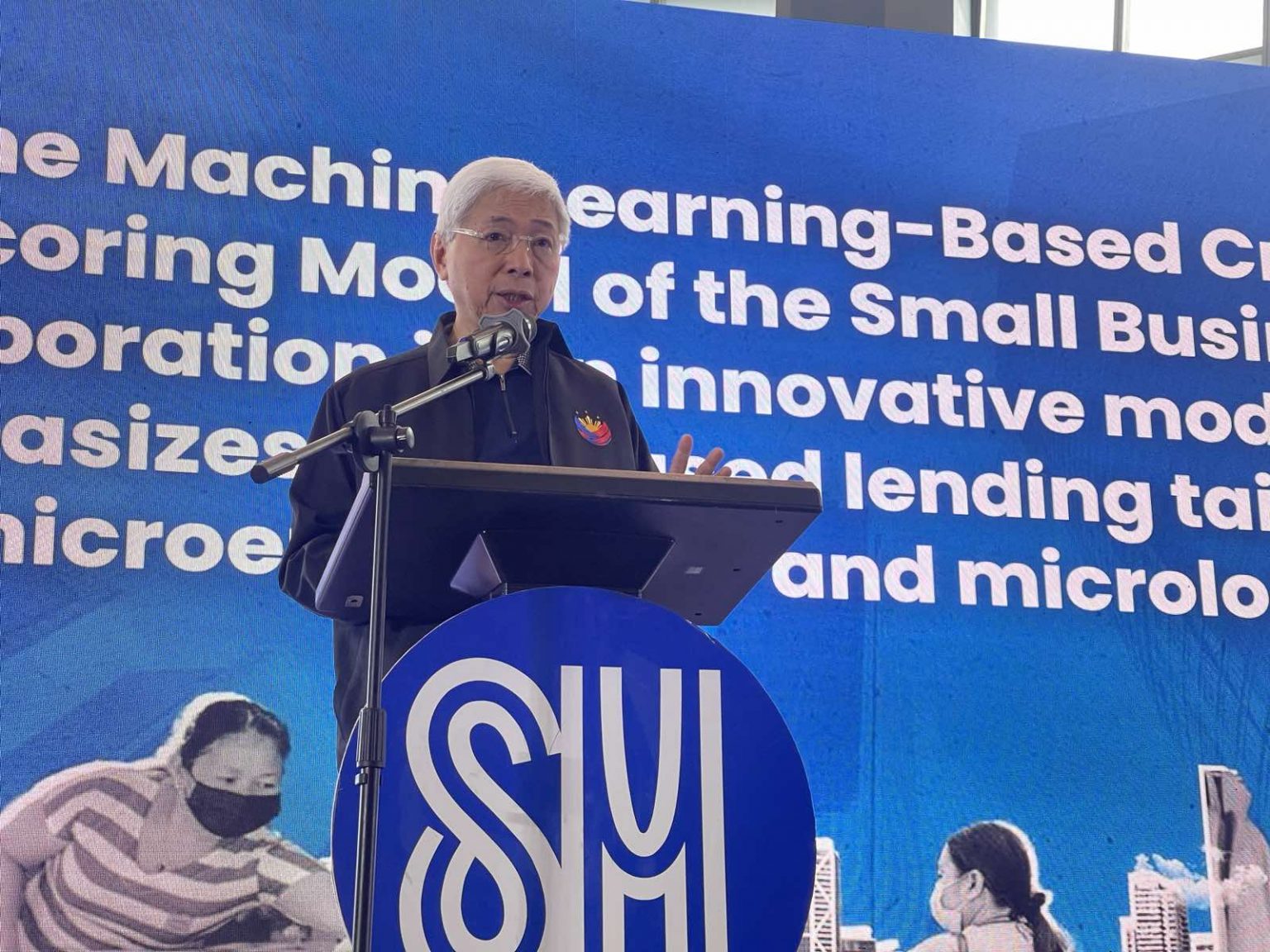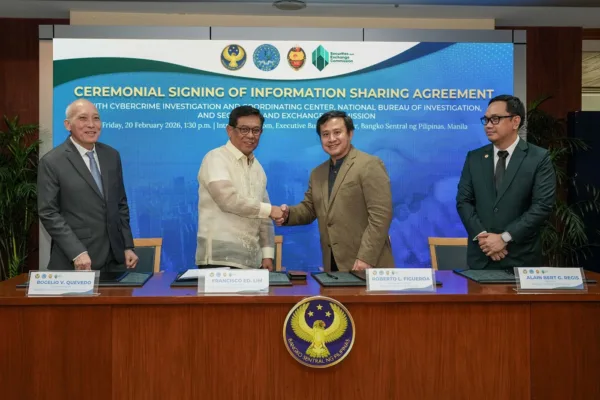The Department of Trade and Industry (DTI) is spearheading a groundbreaking initiative to support over 300,000 micro, small, and medium-sized enterprises (MSMEs) in the Philippines by helping them join e-commerce platforms.
This move is part of the DTI’s broader effort to empower these businesses, allowing them to expand their customer base and enhance their competitiveness in the global market.

DTI Secretary Pascual while delivering a speech at the National MSME Summit 2024
Trade Secretary Alfredo Pascual made the announcement at the National MSME Summit 2024, revealing that the DTI has successfully onboarded at least 300,321 of them onto various e-commerce platforms between January 2023 and March 2024.
Giving MSMEs the needed tools to thrive in a digital economy
According to the trade secretary, this initiative aims to provide MSMEs with the necessary tools and knowledge to thrive in the digital economy, leveraging the reach and efficiency of online marketplaces.
“The onboarding process includes comprehensive training on using major e-commerce platforms such as Shopee, Amazon, and Lazada, as well as social networking sites like Instagram, Viber, and TikTok marketplaces,” Pascual explained. “This multifaceted approach ensures that they are well-equipped to navigate and capitalize on the opportunities presented by these digital platforms.”
In a speech delivered during the summit, Pascual also emphasized the transformative potential of digital technology for MSMEs, saying, “At the DTI, we translate the theme ‘Innovate to Elevate‘ into action.”
“Through our mission of Angat Negosyo, we are integrating digital technologies to propel them to new heights of competitiveness and scalability. Imagine reducing costs, boosting productivity, and reaching new markets. That’s the power of digitalization. We are doing much to digitally transform our MSMEs and put digital technologies into their hands,” the DTI chief further stated.
MSMEs have played a crucial role in the Philippine economy, accounting for over 90% of businesses and employing millions of Filipinos.
The DTI’s initiative comes at a crucial time, as the COVID-19 pandemic has accelerated the shift towards digital transactions and highlighted the importance of online presence for businesses. By integrating MSMEs into the digital economy, the DTI aims to foster resilience and sustainability among these enterprises, which are the backbone of the Philippine economy.
MSME benefits extend beyond joining e-commerce platforms
The benefits of this program extend beyond merely joining e-commerce platforms. It also includes digital literacy training, enabling MSMEs to effectively market their products online, manage digital transactions, and engage with customers through various online channels. This holistic approach ensures that businesses not only enter the digital marketplace but also thrive within it.
Moreover, the DTI’s efforts are aligned with the government’s broader goals of digital transformation and inclusive growth. By equipping MSMEs with digital tools and skills, the DTI is contributing to the country’s economic recovery and long-term development. This initiative is expected to create new job opportunities, stimulate economic activity, and foster innovation across various sectors.
The success stories of MSMEs that have already benefited from the program are a testament to its impact. Many small businesses have reported significant growth in their customer base and sales after joining e-commerce platforms. For instance, a small handicraft business in Cebu saw a 50% increase in sales within six months of joining Lazada and Instagram.
Similarly, a food processing enterprise in Davao expanded its reach to international customers through Amazon, leading to a substantial boost in revenue.
Their success underscores the transformative potential of digital technology for MSMEs. By providing access to a global market, e-commerce platforms enable small businesses to compete on a level playing field with larger enterprises. This democratization of commerce is a key driver of economic inclusion and empowerment.
“By prioritizing digitalization, we are preparing our MSMEs for the demands of the contemporary economy, securing their ongoing contribution to our nation’s progress,” Secretary Pascual further stated while underscoring the pivotal role of MSMEs in the Philippine economy, where they represent 99.59% of enterprises and 65.1% of jobs.
In the end, the DTI’s initiative to onboard over 300,000 MSMEs onto e-commerce platforms marks a significant milestone in the Philippines’ journey towards digital transformation. By equipping small businesses with the tools and knowledge to thrive in the digital economy, the DTI is fostering a more resilient, competitive, and inclusive business environment. This program not only supports the growth and sustainability of MSMEs but also contributes to the broader goals of economic recovery and development in the post-pandemic era.








